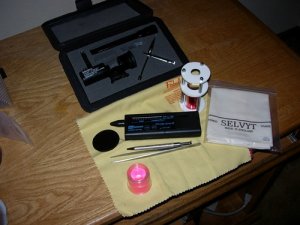diamondgezer
Rough_Rock
- Joined
- Apr 16, 2014
- Messages
- 54
SandyinAnaheim|1398749719|3662442 said:Not irrelevant. I'm trying to make a point, unlike you.GeorgeStevens said:We're not talking about beef, cigars, meteorites, or space aliens - all irrelevant.
diamond (dī′ə-mənd)GeorgeStevens said:The term diamond describes nothing but a "a metastable allotrope of carbon, where the carbon atoms are arranged in a variation of the face-centered cubic crystal structure called a diamond lattice." Nothing about origin.
A form of pure carbon that occurs naturally as a clear, cubic crystal and is the hardest of all known minerals. It often occurs as octahedrons with rounded edges and curved surfaces. Diamond forms under conditions of extreme temperature and pressure and is most commonly found in volcanic breccias and in alluvial deposits. Poorly formed diamonds are used in abrasives and in industrial cutting tools.
Wrong again Georgie.
First, my grasp of the English language is far superior to any that you might ever hope to reach, hence the endless analogies to try to get you to comprehend that a "diamond" is not always a diamond if it is made in a lab. It is precisely that nuance that I take exception to. Words have meanings and connotations as teobdl described above. The word diamond has a normative meaning, to use his phrase, and it will never mean lab-created diamond, no matter how hard you stomp on your little soap box.GeorgeStevens said:Your analogies are torturing both the English language and patience for really long posts that don't talk about diamonds.
Second, if you don't like my posts, you are welcome to disengage at any time. And considering how often you sidestep direct questions and comments, which to me looks like you either can't respond intelligently or fail to grasp the concepts altogether, your departure would be welcome.
For all of time, the term diamonds has meant a "form of pure carbon that occurs naturally as a clear, cubic crystal and is the hardest of all known minerals". Only in the past 100 years has anyone tried to duplicate a diamond in a laboratory, and it wasn't until the '70s that the Russians created CZ - a diamond simulant. All diamonds have been natural up until the last 50 years or so, so it is not a mistake of any sort. If all diamonds were diamonds, then they would be allowed to be sold as such - and they never will be. Lab created diamonds will always be distinguished by a moniker somehow denoting that it does not come from nature.GeorgeStevens said:It's a common mistake you make, to assume that diamonds are all natural, and this is why reputable vendors disclose the origin should it be synthetic, but the term "diamond" says absolutely nothing zero nada zilch about origin.
Again, you fail to understand the question I asked. Perhaps you need ESL or reading comprehension lessons? You're sure going to be surprised the day man-made diamonds flood the market and the value you placed on the synthetic hits the floor. Currently, prices for synthetics are nearly as high as for mined, so you must have paid a pretty penny for the false diamond you gave the unsuspecting Mrs. Stevens. What value will your synthetic have when people will be able to obtain synthetic diamonds as a prize out of a Cracker Jack box?GeorgeStevens said:As for people choosing a larger synthetic over a mined diamond, you will certainly find people who have done so. I have.
I've been watching this debate with interest, as have a lot of people, and it's sad to see it degenerate. Posts dripping with sarcasm are unhelpful, Sandy, I must say that Teobdl has summed up the discussion as it's developed very well (twice). You say a 'Diamond has a normative meaning'. The terms constitutive and normative are characteristics of an object, Consitutive characteristics in toto are necessary (and sufficient) to define the object. Normative characteristics bring us full circle back to the discussion Diamond, Natural Diamond, Man made etc.




300x240.png)